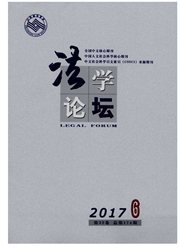

 中文摘要:
中文摘要:
在从计划经济向现代市场经济的转型中,财税改革因“牵动大部、覆盖全部”的特征,成为经济改革、政治改革、社会改革的突破口。制度是推动经济升级和国家治理现代化的持久力量,财税法制建设则需从公共财税、法治财税、民主财税这三方面进行。其中,公共财税要求合理地划清政府与市场的界限,借助兼顾中性和公平的税制、回归提供公共品的财政支出,建立一个有限且有效的政府。法治财税要求充实市场经济运行规则,通过落实财税法律主义、加强预算刚性效力,防止公权力随意干扰市场主体的正常预期,推动规范之治、有序之治。民主财税要求在财税信息公开化、阳光化的基础上,促进代议制民主和参与式民主相结合,并借助财政问责机制打造一个被信任、受监督、高绩效的政府。
 英文摘要:
英文摘要:
In the transformation from planned economy to market economy, fiscal and taxation reform affects a majority of areas, thus becoming the breach of economic reform, political reform and society reform. Systems are a kind of enduring power which promotes economy upgrading and the modernization of state governance, and fiscal and taxation systems should be constructed from three aspects, including public finance and taxation, the rule of fiscal and taxation law, and democratic finance and taxation. Among them, public finance and taxation requires to draw a clear line between the market and the government reasonably, which means that we should rely on a neutral as well as fair taxation regime and public goods - oriented fiscal expenditure, in order to build a limited and effective government. The rule of fiscal and taxation law requires to enrich the rules of market economy, which means we should put the statutory fiscal and taxation principle into practice, and enhance the rigidity of budgets, so as to prevent public authorities from interfere in the normal expectations of market participants, and make the market more normative and well - organized. Democratic finance and taxation requires to combine representative democracy with participatory democracy on the base of fiscal and taxation information openness, and build a trusted, supervised and efficient government by means of fiscal accountability.
 同期刊论文项目
同期刊论文项目
 同项目期刊论文
同项目期刊论文
 期刊信息
期刊信息
